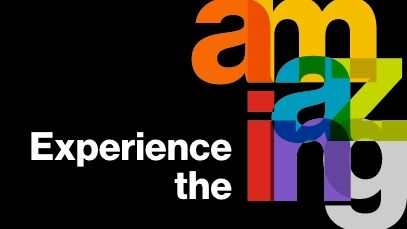Besim Agusaj
Professional studies professor
RIT Croatia
Select Scholarship
Published Conference Proceedings
Agusaj, Besim and Ana Cuic Tankovic. "The Relationship Between Employee Intention to Quit and Perceived Corporate Reputation on User-Generated Content in Hotel Industry." Proceedings of the EU Future Perspectives: Innovation, Entrepreneurship and Economic Policy. Ed. Robert Zenzerovic. Pula, Croatia: Juraj Dobrila University of Pula, 2015. Print.
Journal Paper
Agusaj, Besim and Jennifer Matic. "The Alignment of Hospitality Education with Industry Needs In Transitional Countries: The Case of Croatia." Revista de Turism 12. (2012): 19-27. Print.
Agusaj, Besim. "Managers and New HR Paradigm." Direktor. (2012): 18-20. Print.
Invited Keynote/Presentation
Agusaj, Besim. "Employee Engagement." DT Workshop. Dubrovnik Travel. Dubrovnik, Croatia. 16 Nov. 2012. Lecture.
Currently Teaching
HSPT-225
Hospitality and Tourism Management Fundamentals
3 Credits
Hospitality and tourism industry is one of the largest industries in the world. This introductory course provides students with an overview of hospitality industry and segments of travel and tourism. Students are introduced to career opportunities and skills needed to succeed in the specific hospitality and tourism fields. Students examine the growth and development of industry segments and their distinguishing characteristics, current issues and trends. Students will learn about the interdependence of the various industry players and the roles of these diverse participants within the industry. The concepts and practices of hospitality management are examined and discussed.
HSPT-315
Lodging Operations Analytics and Management
3 Credits
This class includes an overview of hotel management from its opening to continuing operations. It focuses on the integrated functions of the front office, housekeeping, engineering, security, food & beverage, human resources, and accounting, as well as considering their roles individually. Students will apply revenue management principles (e.g., capacity management, duration control, demand and revenue forecasting), costing (e.g., budgeting, marginal costing, standard costing and variance analysis, labor accounting, balanced scorecard) and interpret hospitality financial statements (uniform system of accounts for lodging and restaurants) to understand and manage organizational performance. The course addresses foundational metrics and definitions used by the hotel industry and provides an opportunity to complete a certification exam (CHIA: Certification in Hotel Industry Analytics) by STR through the American Hotel and Lodging Educational Institute.
HSPT-374
Hospitality Enterprise Management And Growth
3 Credits
Enterprises in hospitality and tourism pass through many stages as they grow from a start-up to a mature organization. This course highlights what must be accomplished during each stage to ensure that hospitality business development is continued and sustainable. The critical point of the course is to give students an in-depth understanding of tools and skills necessary to create and grow a successful new tourism or hospitality enterprise with potential to expand. Students will actively discuss concepts and possible alternatives in operating hospitality- and tourism-based enterprises
HSPT-377
Hospitality Luxury Operations Design
3 Credits
The exceptional and changing nature of high-end tourism (experiential, emotional, authentic, individualized, etc.) suggests that luxury tourism professionals require a unique set of skills. As such, this course will provide students with the theoretic foundations to luxury service design, preparing them to operate in today’s luxury segment and enabling them to create and manage personalized experiences. Luxury service design is a holistic design process operating in the realm of constant uncertainty and change, i.e. chaos that arises from the contextual nature of personalized service and the ambition to solve problems that customers do not even know they have. Consequently, the chaos comes from the customers by default because they, by wanting personalization, resent standardization, which in turn means that organizations have to rearrange their stratagems in real time around what they hear from their clients. The luxury service design must therefore use skills from a variety of disciplines (design, psychology, management and process engineering) to develop models of co-creation of unique value with each individual customer, i.e. personalized experience in the process of continuous experiment. Tools like market analysis, active listening, analysis of customer behavior, mapping, heat-mapping, blueprinting, service marketing, complex service networks and imagineering will help to discern the new opportunities for value creation in the convergence of customers’ needs and desires, technological capabilities, and organizational innovations, taking customers beyond their current horizon of cognition.
INTB-225
Global Business Environment
3 Credits
Being an informed global citizen requires an understanding of the global business environment. Organizations critical to the development of the global business environment include for-profit businesses, non-profits, governmental, non-governmental, and supranational agencies. This course introduces students to the interdependent relationships between organizations and the global business environment. A holistic approach is used to examine the diverse economic, political, legal, cultural, and financial systems that influence both organizations and the global business environment.
MGMT-215
Organizational Behavior
3 Credits
As an introductory course in managing and leading organizations, this course provides an overview of human behavior in organizations at the individual, group, and organizational level with an emphasis on enhancing organizational effectiveness. Topics include: individual differences, work teams, motivation, communication, leadership, conflict resolution, organizational culture, and organizational change.







